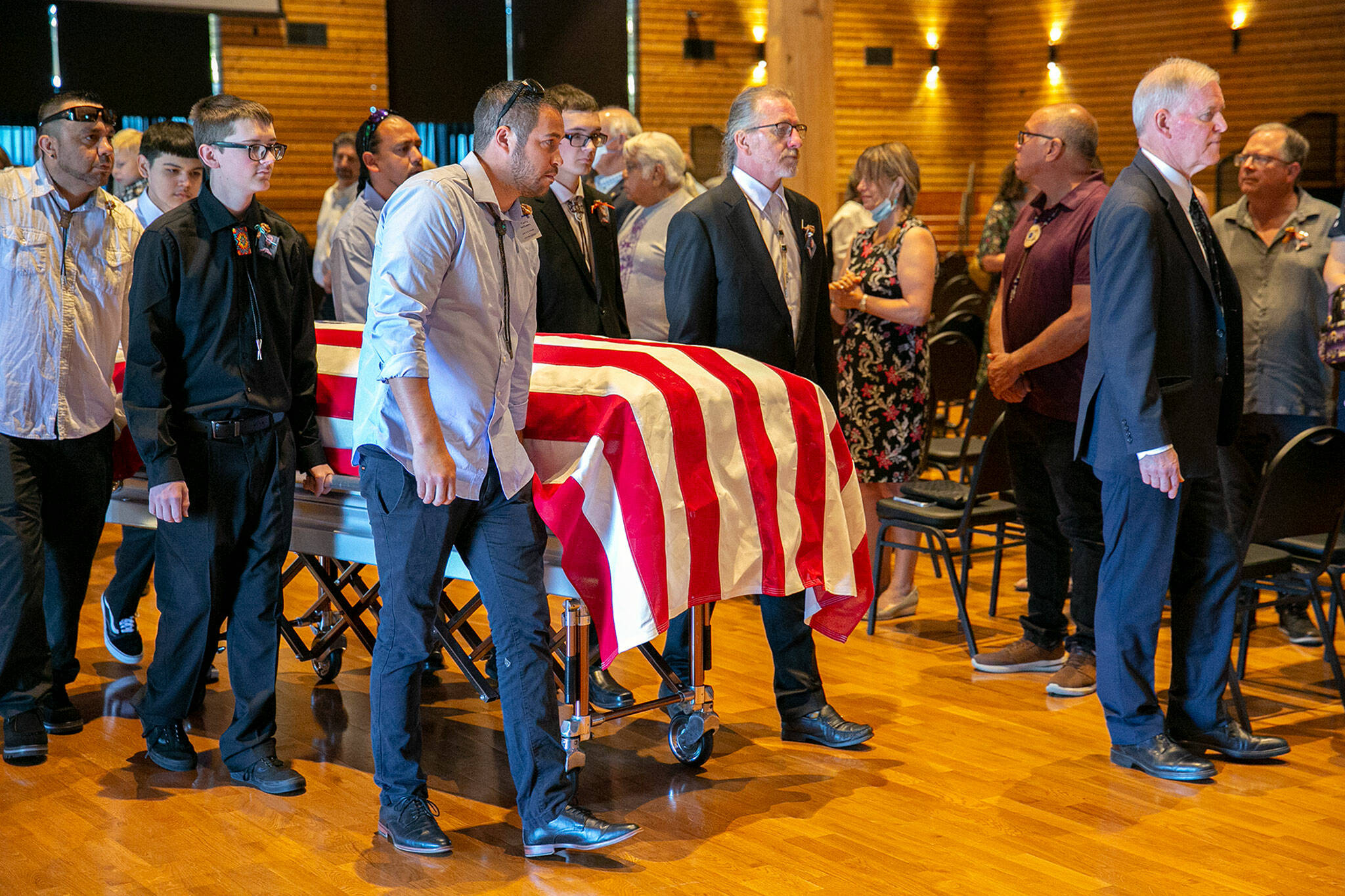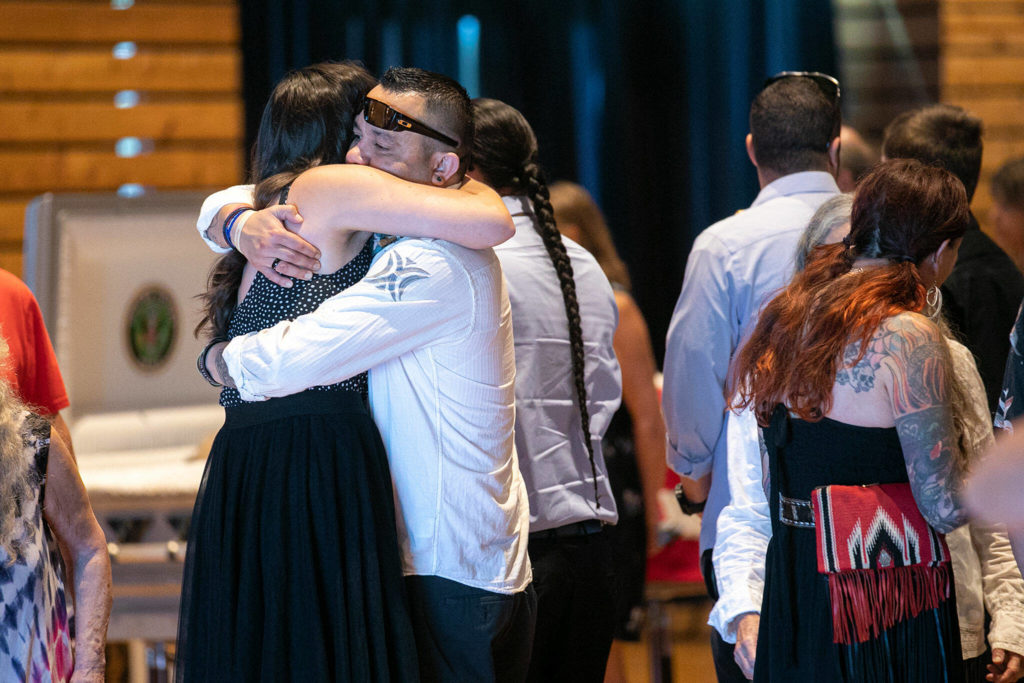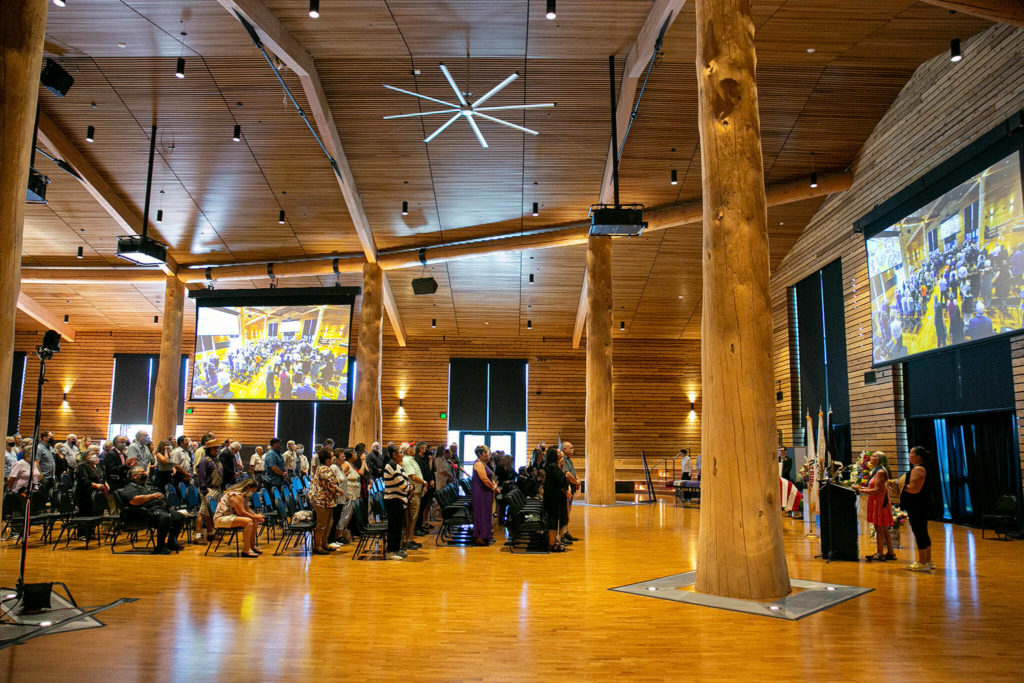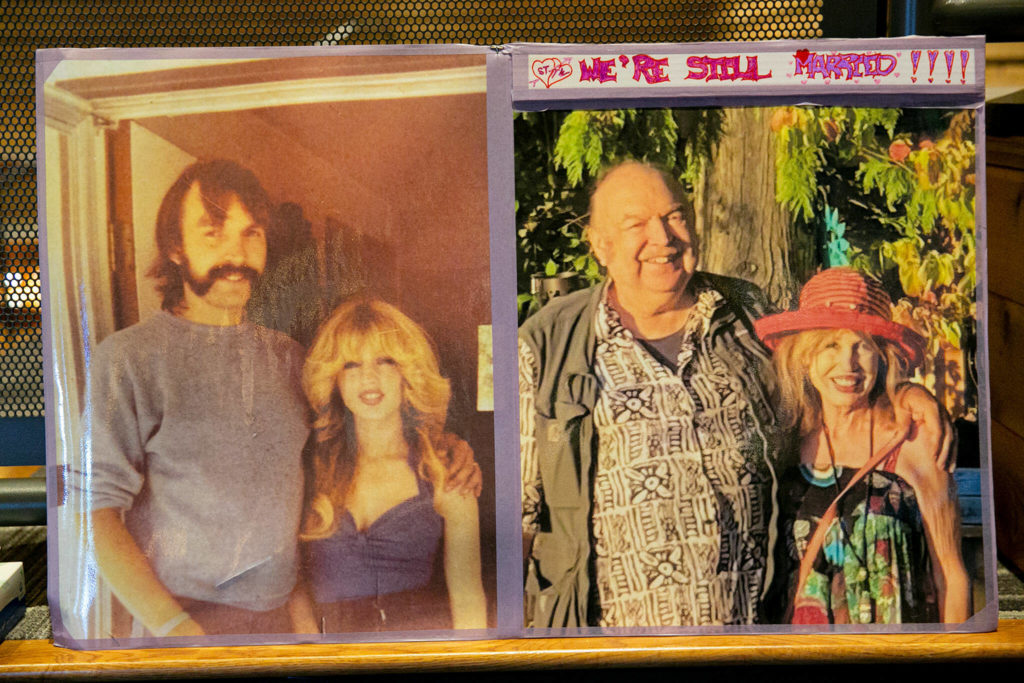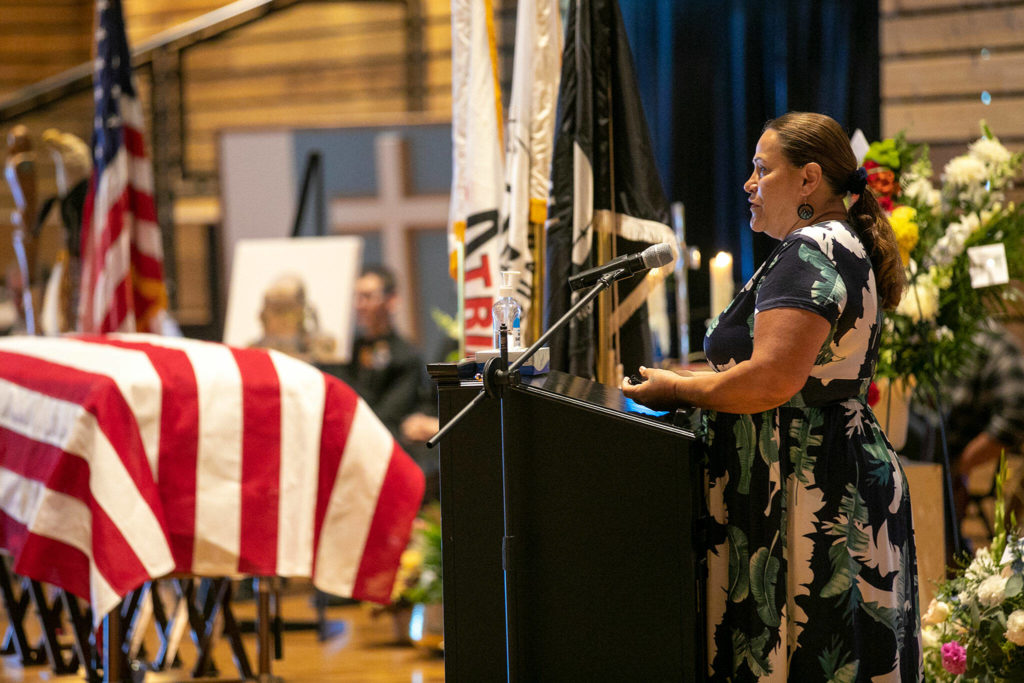TULALIP — A soft-spoken leader. A fierce, yet never angry, fighter. A forward-thinking man, ahead of his time.
That’s how friends described Terry Williams at a funeral Saturday that drew hundreds to the Tulalip Gathering Hall to honor the tribes’ climate champion who died in July at 74.
But Father Pat Twohy told the mourners, many wearing bolo ties like Williams often did, “no words would ever be enough” to summarize the Tulalip man’s life.
“It’s easy when you have a great man like this to find some worth,” Twohy said. “But at the same time it’s not so easy because of the love for him and that no words would ever be enough to capture the magic of him, the strength of him, the wisdom of him.”
Mourners, including the executives of Snohomish and King counties, came from reservations and cities far and wide to remember Williams.
Born Terrance Rollo Williams on April 23, 1948, he was the son of a reverend and Sunday school teacher, Adam and Marge. He went on to study nursing before serving in the Vietnam War in the U.S. Army. He would serve a country that often didn’t take care of him and his community, Glen Gobin recalled. On Saturday, his casket was draped in the American flag.
Pictures flashed on screens in the Gathering Hall showing that lesser-known Williams. An unbuttoned military green collared shirt revealed dog tags dangling against his bare chest. In another image, he casually leaned on a rack of long guns.
“But he did his duty,” Gobin said. “He came back and he himself would admit that he came back a little messed up. He struggled with it.”
Elders handpicked Williams to serve as the tribes’ fisheries director, said Patti Gobin. At the time, he knew nothing about what the job entailed, but he worked tirelessly to learn from fisheries biologists like Dave Somers, and tribal fishing rights advocates like Stan Jones Sr.
“Fast forward to where we are today and think about that journey, of everything that Terry has done,” Glen Gobin said. “There was no roadmap to make this stuff happen. You had to forge a way to open doors, create opportunities.”
Thinking about the era Williams grew up in, “and what that meant to be Native in Washington state, let alone the United States, with the laws that were in place, the opportunities that were not there,” he said. “The pathways to protect and fight for what you always did: hunting, fishing and gathering, were not there. They were very limited.”
Working in the tribes’ fisheries, natural resources and treaty rights offices, Williams began to lay the groundwork for future generations.
In all of his work, Williams was at the forefront of the tribes’ fight against climate change. Don “Penoke” Hatch, a tribal elder, said “Terry was way ahead of all of us.”
“He felt that God gave us clean air, clean water and clean ground and what did we do with it?” Hatch said.
Patti Gobin remember serving coffee at her dad’s house for a group called the “Old Dogs” that included Williams, whose traditional name was Se’Tal. They would talk about how to protect treaty rights, how to provide a future for the tribes’ “where we’re not faceless, where we’re not just put on a reservation and nobody knows who we are”
At the time, Patti Gobin was offended she was the one who had to serve the men. But now she realizes “no degree can ever teach you about the intrinsic values of your people, of your family” like the Old Dogs did.
He would go on to share those values as the first leader of the American Indian office in the U.S. Environmental Protection Agency, and at the United Nations Convention on Biological Diversity.
Mason Morisset, a litigator focused on Indigenous issues, worked with Williams for years. He remembered Williams bringing him lofty ideas and then figuring out a way to make them happen.
“Mace,” he remembered Williams calling him, “we’ve gotta stop this logging in riparian zones.”
“You’re right,” Morisset responded. “What’s a riparian zone?”
That idea led to the creation of the first Timber/Fish/Wildlife Agreement in the 1980s, outlining plans for a more ethical forestry future. The accord, crafted through 60 meetings between tribes, timber companies and state agencies, provided the blueprint for negotiating regulations to protect old growth, fish-bearing streams and resolving disputes out of court.
Patti Gobin thanked Williams’ wife of 50 years, Suzanne, for sacrificing time with her husband for the greater good, saying “all of the Indian country benefited from Terry.”
“He was always thinking about the love of his people, about future generations, seven generations out,” she said. “In Coast Salish, we say, “When we win, you win” because it’s all about the environment. We are the environment.”
With over a dozen grandchildren, Patti Gobin now wonders who will continue fighting for their future.
Williams is survived by his wife, his sons Joshua, Jesse and Jamie, and grandchildren Alysa, Camila, Isla, Noah and Damari.
Jake Goldstein-Street: 425-339-3439; jake.goldstein-street@heraldnet.com; Twitter: @GoldsteinStreet.
Isabella Breda: 425-339-3192; isabella.breda@heraldnet.com. Twitter: @BredaIsabella.
Talk to us
> Give us your news tips.
> Send us a letter to the editor.
> More Herald contact information.
